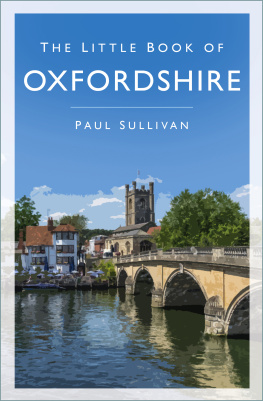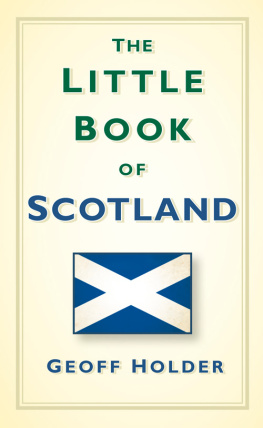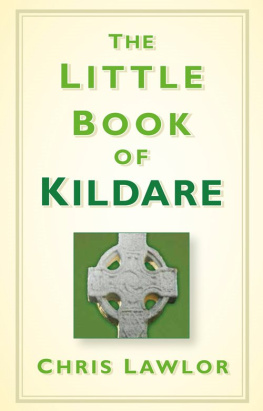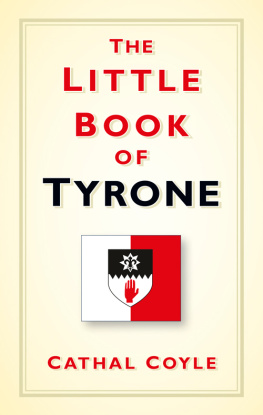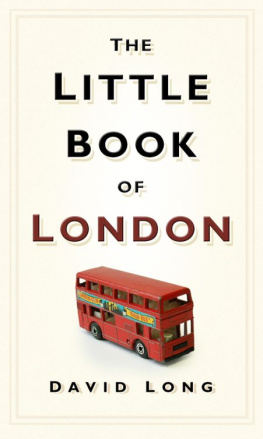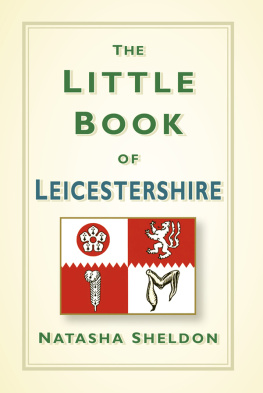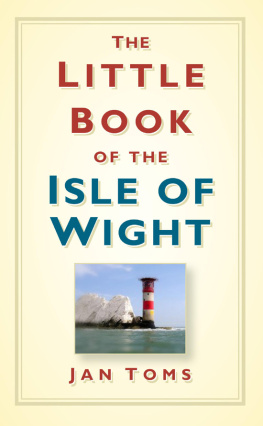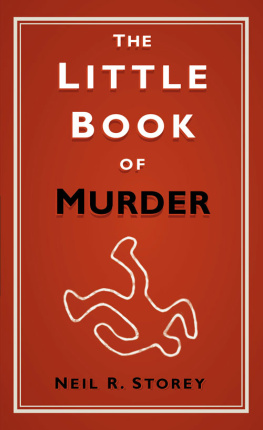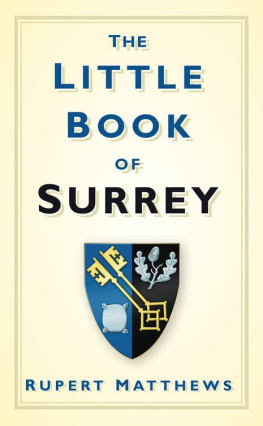THE
LITTLE
BOOK
OF
LIVERPOOL
THE
LITTLE
BOOK
OF
LIVERPOOL
ALEXANDER TULLOCH

First published 2011
Reprinted 2012
The History Press
The Mill, Brimscombe Port
Stroud, Gloucestershire, GL5 2QG
www.thehistorypress.co.uk
This ebook edition first published in 2013
All rights reserved
Alexander Tulloch, 2011, 2013
The right of Alexander Tulloch to be identified as the Author of this work has been asserted in accordance with the Copyright, Designs and Patents Act 1988.
This ebook is copyright material and must not be copied, reproduced, transferred, distributed, leased, licensed or publicly performed or used in any way except as specifically permitted in writing by the publishers, as allowed under the terms and conditions under which it was purchased or as strictly permitted by applicable copyright law. Any unauthorised distribution or use of this text may be a direct infringement of the authors and publishers rights, and those responsible may be liable in law accordingly.
EPUB ISBN 978 0 7509 5399 3
Original typesetting by The History Press
CONTENTS
INTRODUCTION
I f you were born on Mars you might not have heard of Liverpool. And if you were born on Mars you might have difficulty naming a famous Liverpudlian or two. Otherwise youve got no excuse; you should be able to reel off singers, footballers, actors, writers, entrepreneurs or politicians who hail from the Pool almost without thinking about it. After all, every time you open a newspaper or turn on the telly you dont have to wait long before you see or hear something or someone to remind you of one of the most renowned cities, not just in Britain, but in the whole world.
Name any field of human endeavour and you will nearly always find the Liverpudlians have been there. Without Liverpudlians the world of literature, sport, television, the railways, the theatre, politics, medicine etc., etc. would have been at least very different and in all probability much the poorer. The vast mixing bowl of Liverpool has had ingredients poured into it from all over the world and the result is a rich mixture of nationalities, languages, skin colours, customs, ideas, talents and regional accents that have all blended to produce something unique. And that unique concoction is the witty, down-to-earth Scouser.
But there was another influence: adversity. These days the resurrection of the city is much vaunted in the newspapers and on television, but even within living memory it was a very different story. The conditions in which many people lived in Liverpool not so long ago were, by todays standards, appalling. The overcrowding, the squalor, the hunger and the violence took a heavy toll among the rapidly expanding population, particularly in the nineteenth century, but those who survived proved that poverty can be both a harsh master and a good teacher. Liverpudlians themselves used to say that if you could survive in Liverpool you could survive anywhere. There might be a slight exaggeration here but not too much and there are many of Liverpools sons (and daughters) who have come from very humble beginnings and gone on to achieve great things. The contribution Scousers have made to British and world culture is undeniable.
When the author of this book was a boy, Liverpool was associated just about everywhere else in Britain with poverty, crime, bomb sites and slums and, to be honest, the city still has many problems. But to most people born after the 1950s the city is synonymous with The Beatles, comedians, music, first-class football and gripping television drama. And of course, it is now also a byword for some of the most exciting new architecture in the world. Liverpudlians can now speak with pride of Liverpool One, undeniably among the finest examples in the land of what can be achieved in the field of renovation, reconstruction and architectural renaissance. The grimy Paradise Street of a generation ago has been swept aside. Now visitors and residents alike can shop, have a meal or just sit at a continental-style pavement caf and enjoy a coffee and croissant (or possibly even a wet Nellie see p.11) in clean and pleasant surroundings. Or, if they prefer, they can move a few yards away from the bustling urban activity and sit in a thoughtfully designed park, switch off and indulge in the delightful pastime of just watching the world go by.
But that is not all. The planners have also transformed the Pier Head. When the plans for the new waterfront were first published many people had their misgivings. The already iconic Three Graces were to be joined by futuristic, experimental architecture which, it was feared, would be totally out of keeping with its surroundings. But the fears have been proven groundless. The old and the new blend together harmoniously and King Edward VII, astride his trusty steed, appears quite unruffled by the changes that have been taking place all around him over the last decade or so. The only slight misfit now is Our Lady & St Nicholass Church, built on the site of St Mary del Key, the thirteenth-century church by the waters edge. This stately reminder of the very earliest days of the little hamlet that developed over 800 years into a mighty port now looks a little forlorn and overawed by her surroundings. Once she dominated the skyline and was a beacon to homeward bound sailors; now it is her turn to be put in the shade by surrounding hotels and high-rise commercial buildings. Like a graceful dowager duchess almost obscured by her taller sons and grandsons, she must accept her more lowly status, but then this is progress. Liverpool has changed enormously, as has the world. And the world, in many respects, has been changed by Scousers.
Now, something of an apology. When I accepted the challenge of putting this book together, I knew there would be no shortage of material on which to draw as the city where I was born is a veritable gold-mine of historical, social and cultural information. But I confess that I did not realise just how rich that goldmine would turn out to be. Consequently there are no doubt many people, places, events and facts which I have left out, either intentionally or unintentionally, which readers feel I ought to have included. If such omissions are seen as a defect, I can only say in my own defence that there is a limit to what you can cram into 50,000 words.
LIVERPOOL HUMOUR: EXAMPLE ONE
Hell pay yer back that fiver when Nelson gets is eye back
Youll never see that 5 you lent him again
JUST FOR STARTERS...
SOME TRIVIA
Liverpool is just the most recent spelling in a long list of variants. In the eleventh century it was either Lytherpool or Lyrpool. In the twelfth, Litherpool appeared and then, by the reign of King John (11671216) we find Lyrpul. Then there was a whole succession of different spellings: Liverpolle, Liverpull, Lierpull and, by the sixteenth/seventeenth centuries, Lyrpole, Lyverpoole and Leverpool.
The American poet Allen Ginsburg (192697) referred to Liverpool as being the centre of consciousness of the human universe.
Liverpool is the only city on mainland UK to have elected an Irish Nationalist MP. In 1885 Thomas Power OConnor was elected to represent the then Liverpool constituency of Liverpool Scotland (the Scotland Road area) at Westminster.
Liverpudlians used to be referred to as Liverpolitans.
The land on which the Adelphi Hotel now stands used to be a pleasure garden where the better-off residents strolled and listened to music on fine summer evenings.
Adelphi is Greek for brothers. The name was chosen because the hotel was built on the site of a former country home owned by two brothers and it was intended to preserve their association with the hotel by referring to them in its name.
Next page


